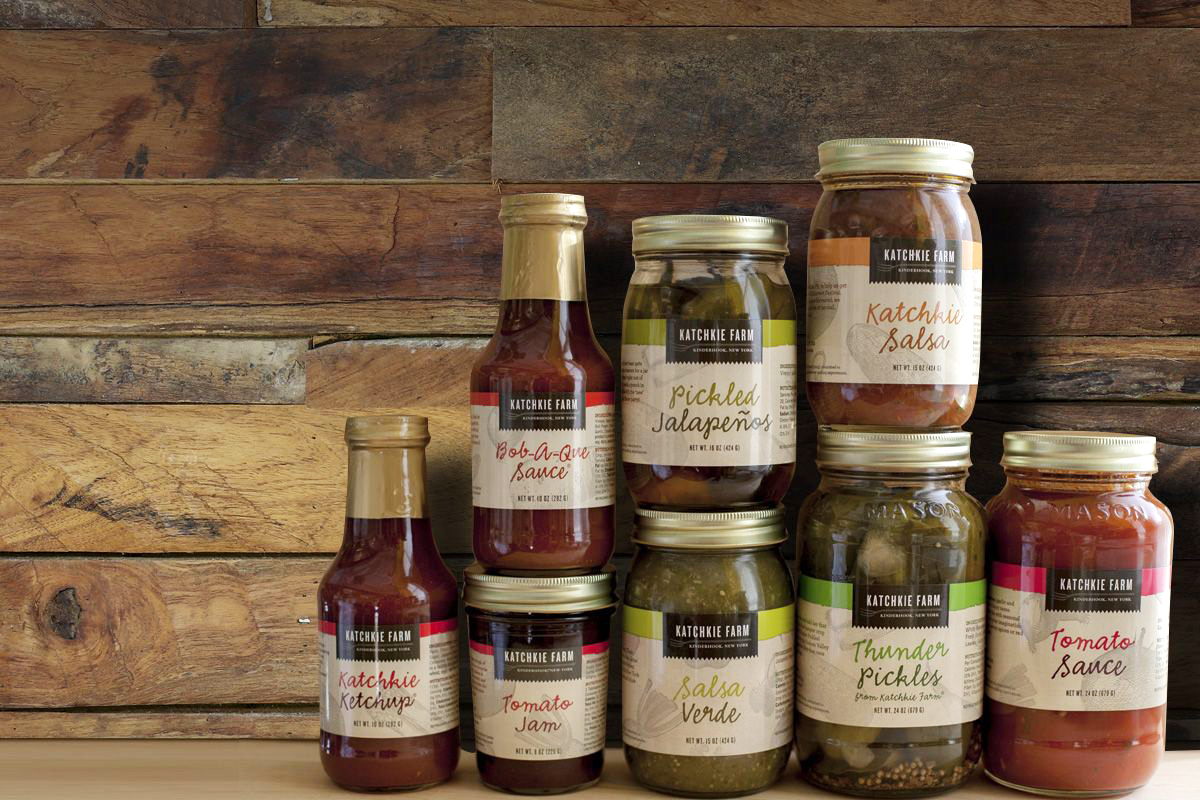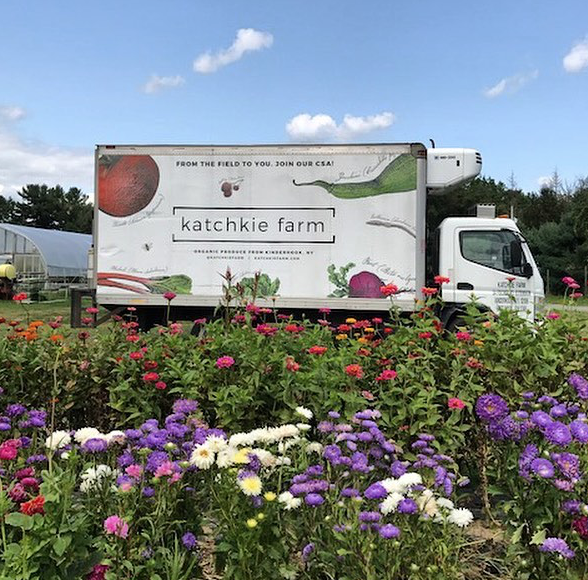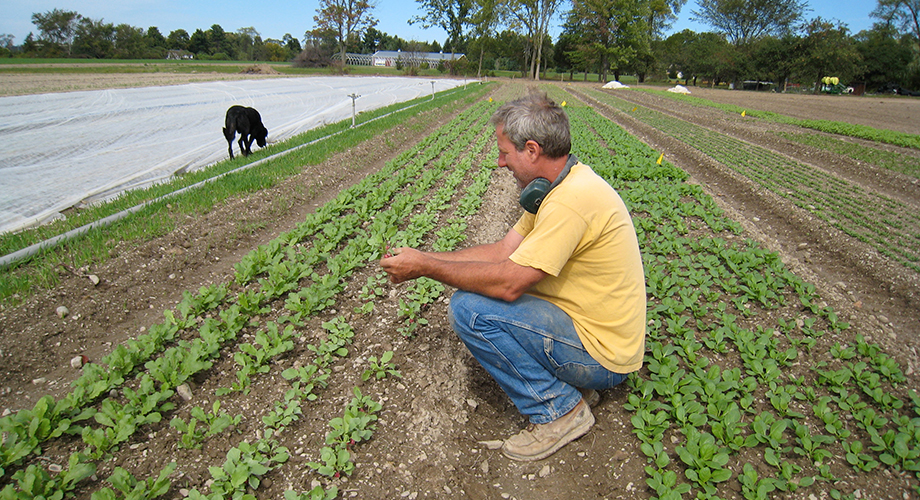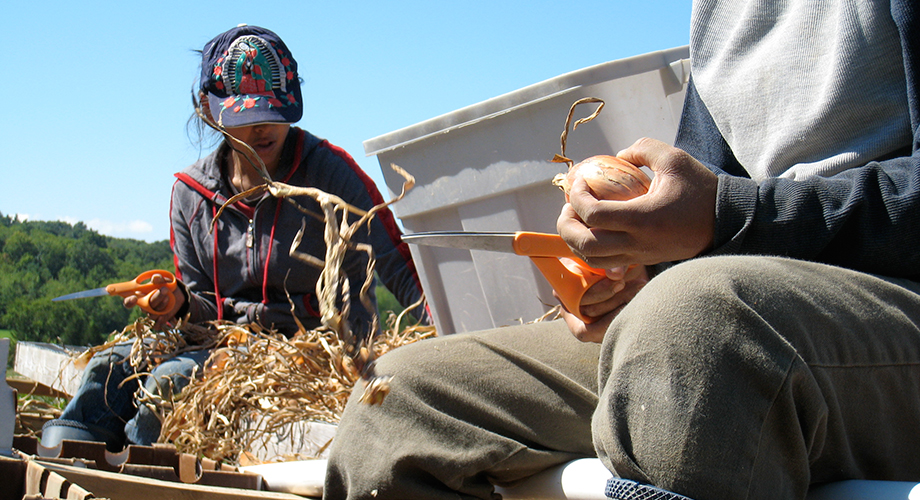Supporting Local Agriculture in Upstate New York
“It’s a nightmare,” said Bob Walker as he shouted after his dog that had taken off toward the neighbors.
Farmer Bob wasn’t talking about the dog. Walker was having a conversation about managing Katchkie Farm, a 60-acre vegetable farm in Columbia County, New York that supports New York City’s famed Katchkie CSA. Katchkie’s community-supported agriculture operation, one of the largest in New York City, delivered more than 130,000 pounds of vegetables to CSA customers in the city last year.
The farm also supplies a good portion of the produce for the celebrated Great Performances catering company in Manhattan, as well as a line of specialty jarred products under the Katchkie name. (We recommend trying the Katchkie Salsa and the aptly-titled Thunder Pickles.)
As with any CSA operation, members of Katchkie CSA pay for a weekly subscription of vegetables up front. They then come to a pickup location weekly to collect their “share”, and the early payment helps the farm cover necessary expenses and the guaranteed customers take the “do or die” nature of retail sales out of the equation– plus it cuts down on food waste. Still, regardless of the security blanket, Farmer Bob has to deliver.
“The CSA thing is all about timing,” he told me. CSA members expect variety in each pickup, and delivering six to ten vegetables at peak harvest all at the same time is not a traditional expectation when it comes to working farms in the Northeast.
For a CSA the size of Katchkie’s (500 shares have already been purchased for this season,) there is software involved. One wouldn’t expect technology to play a role in such an elementary function of nature, but this kind of innovation is now primary: software tells Bob what seeds to buy, when to till, when to sow, and when to get a particular plant at a particular time.
Still, this ingenuity only wards off a fraction of the season’s potential problems. “The software doesn’t drive the tractor yet– but it might someday,” Walker quips. Once the timing is worked out, organic farming becomes about doing everything right. Katchkie is a NOFA-certified organic farm, which means it cannot rely on many of the interventions that chemical companies sell for when things don’t go as planned. Bob faithfully relies on centuries-old tenets of farming– planting with nature, staving off blight– that farmers in the pre-pesticide era cultivated to their advantage.
First, the soil has to be aerated. Tilling adds air to the soil while killing weeds and driving organic matter (read: nutrients) down into the soil. The organic matter comes from fallow. Each year in a different spot, Walker will plant some kind of grain or grass, like clover or alfalfa, that will never be harvested. The grain rots so that it may be tilled back into the soil as worm food, and the cycle continues.
Walker’s “soil recipe” includes adding an organic, chicken manure-based compost to the fields. Still, because each plant needs different nutrients and leaves the soil in different condition, Walker rotates his crops around every year so that the soil doesn’t starve. He makes this plan years in advance, gauging which parts of the land are missing nutrients and which ones will be heavier on bugs, so that he can move the crops to a spot where they will thrive. When all goes according to plan, New York City is 130,000 pounds of vegetables richer.
“Everything moves otherwise the pests catch up with it,” he says. “It’s a little puzzle that you just work through.”
The beds are covered with a floating gauze cover to protect them from bugs and frost; other than that, some mild organic insecticides are all he has to intervene. After that, he depends on weather and time alone.
Katchkie’s first pickup is in early June and at this point– with New York weather fluctuating wildly well into April, Walker has no idea what to expect. But in six weeks, regardless of the conditions, those pickup bags will need to be filled.
For more information on how to sign up for Katchkie CSA, visit their website.






































